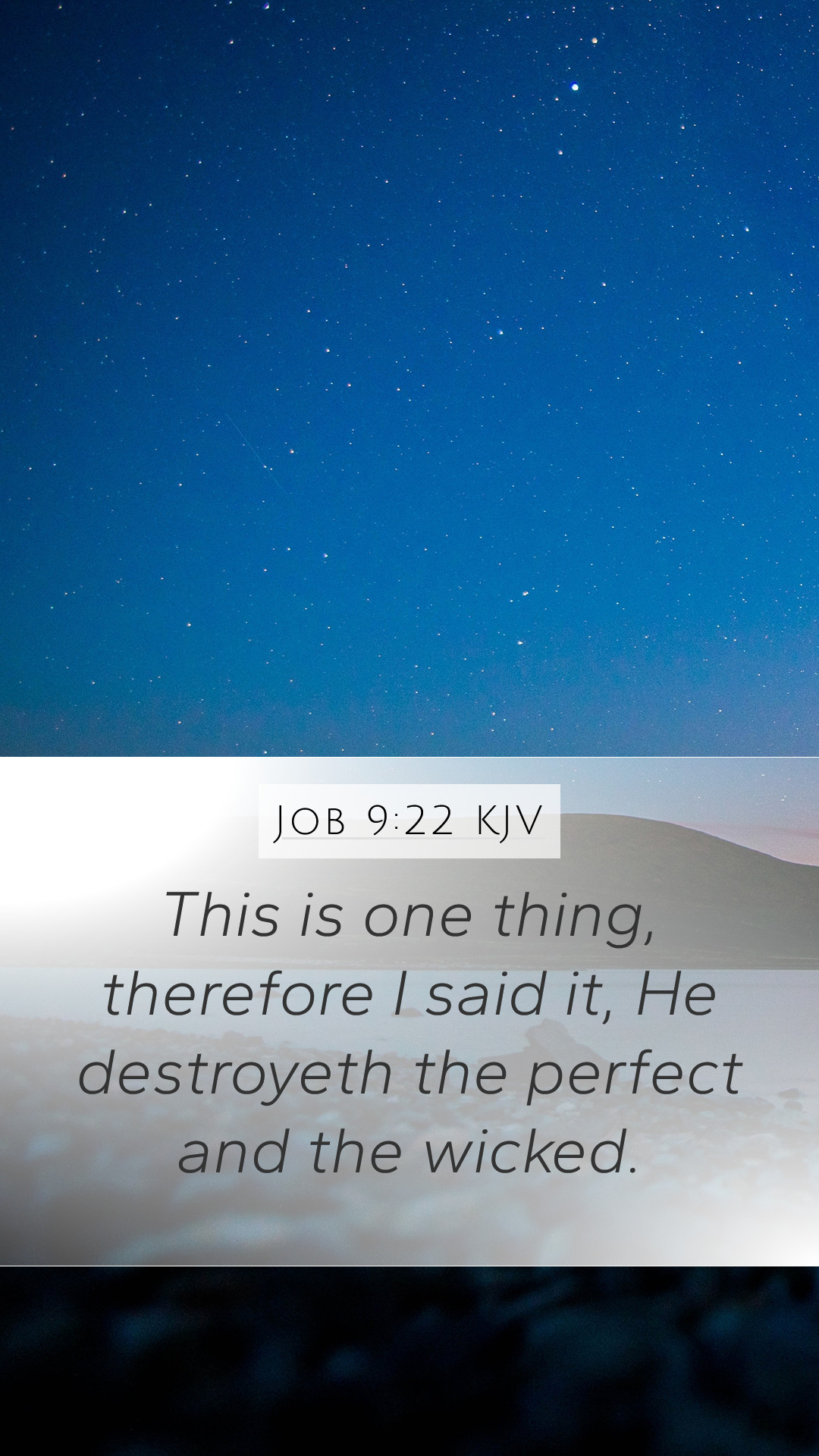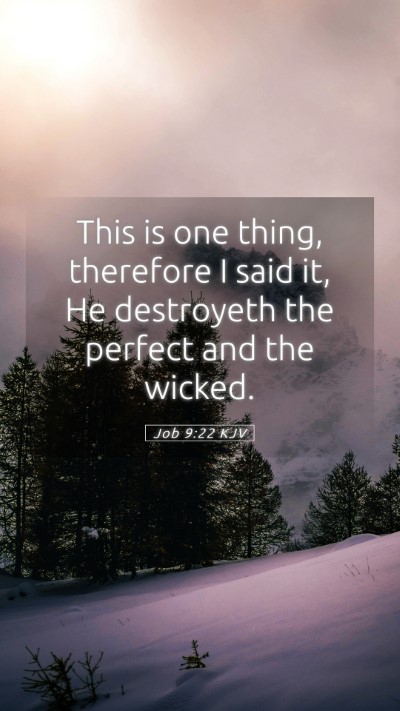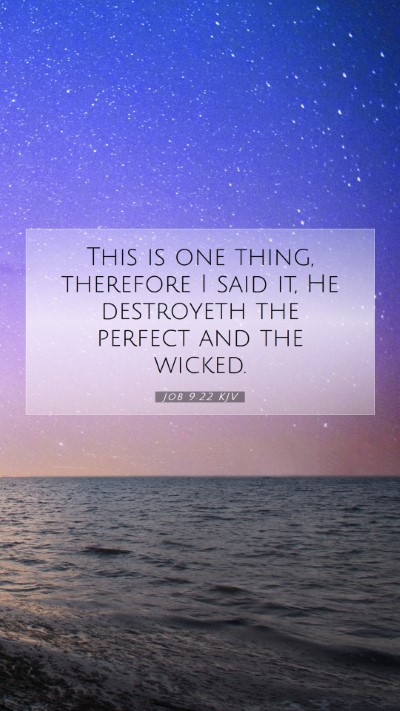Understanding Job 9:22
Job 9:22 reads: "It is all one; therefore I say, He destroys the perfect and the wicked." This verse reveals a profound truth about the nature of God's justice and His governance of the world. The context of Job's statement reflects his deep struggle with the seeming randomness of suffering and divine justice.
Commentary Insights
Matthew Henry's Commentary
Matthew Henry elaborates on the sense of despair that Job expresses in this verse. He points out that Job feels as though no matter how righteous or wicked one may be, the fate could be the same. This statement underscores a deep philosophical question about divine justice and the human condition. It highlights Job's perception that calamity can affect both the just and the unjust, which can lead to confusion and frustration in understanding God's ways.
Albert Barnes' Notes
Albert Barnes delves into the idea that Job is expressing a universal truth applicable to all humankind. He suggests that Job's assertion demonstrates the reality that suffering is not always a direct consequence of one's moral standing. Barnes illustrates that from Job's perspective, God's moral order is perplexing and that divine decisions often escape human understanding. This interpretation invites readers to reflect on the complexities of faith and the human experience of suffering.
Adam Clarke's Commentary
Adam Clarke expands on Job's lament by noting that this verse reveals the depth of Job's existential crisis. Clarke interprets Job's proclamation as an acknowledgment of the futility of trying to understand God's will solely through the lens of earthly justice. He points out that such a realization can lead to both despair and hope, as it invites a deeper trust in God's wisdom beyond human comprehension. This commentary indicates that Job's understanding of God's sovereignty is coupled with a recognition of the limits of human reasoning.
Key Themes and Interpretations
- Divine Justice: Job's lamentation raises profound questions about the nature of justice within the world and God's role in it.
- Equality in Suffering: The verse suggests a troubling yet honest observation that suffering does not discriminate among the righteous and the wicked.
- Human Understanding: The acknowledgment that God's ways are inscrutable challenges readers to rethink their assumptions about divine retribution.
Cross References
- Ecclesiastes 9:2 - "All share a common destiny—the righteous and the wicked, the good and the bad."
- Psalms 73:3-5 - The experience of the wicked prospering while the righteous suffer.
- Matthew 5:45 - "He causes His sun to rise on the evil and the good."
Application and Reflection
This verse encourages believers to grapple with the complexities of suffering in their own lives. It challenges us to seek deeper understanding and trust in God's broader plan, despite our immediate circumstances. How do we maintain faith when faced with suffering? This question becomes a guiding principle in Bible study groups and individual reflections, encouraging exploration of personal experiences alongside biblical teachings.
Conclusion
Job 9:22 serves as a poignant reminder of the profound mysteries surrounding divine justice and suffering. Through the insights of public domain commentaries, this understanding is enriched, inviting deeper contemplation and discussion among believers seeking to reconcile the complexities of life with their faith. Whether through online Bible study or personal study guides, this verse beckons a comprehensive analysis and application to daily life.


